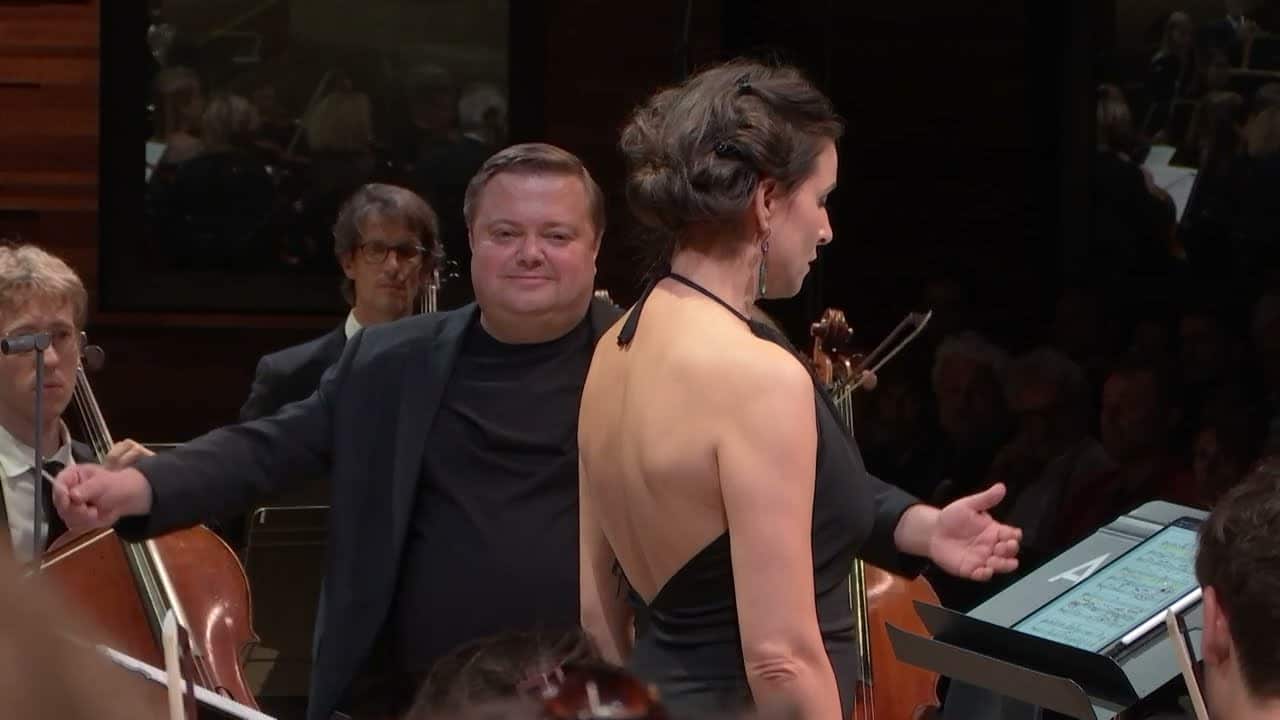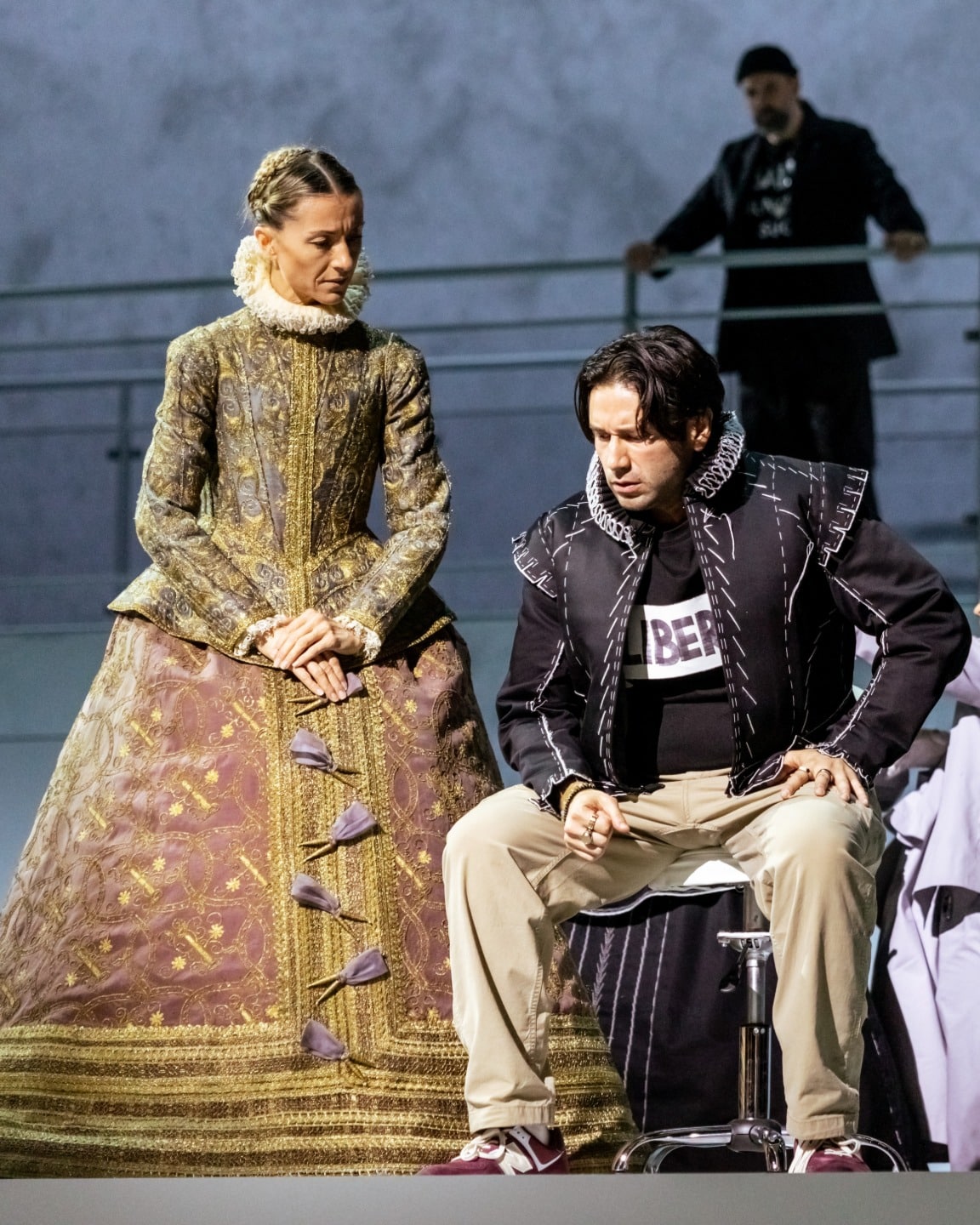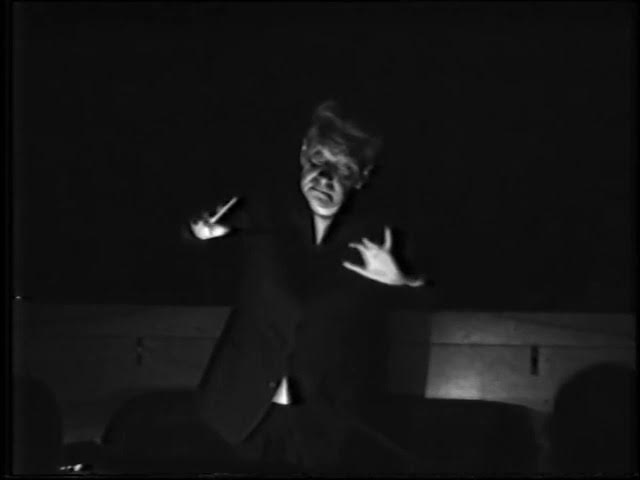Are we going off classical, or just classical radio?
NewsA report in today’s Telegraph examines the collapse in listeners for BBC Radio 3, Classic FM and Scala Radio.
… the latest figures from industry body Rajar reveal that in the third quarter of this year, Radio 3, which had 2.165 million listeners this time last year, had lost 300,000 in four months, falling by 15 per cent to 1.71 million. Classic FM – which was established in 1992 and within months had more than double Radio 3’s listeners – also suffered a fall, down 6.5 per cent to 4.66 million, which is its smallest number for two decades. Meanwhile, Scala Radio, established in 2019, dropped 9.5 per cent from 293,000 to 263,000: quite a collapse from 400,000 listeners in the fourth quarter of 2021.
What’s going on? Is Britain tuning out of classical music?
Read on here.






It’s hard competing with the cool, thumping sounds – and great lyrics too – of rap music, etc.
Be hip or be square.
Get with the program, people.
It’s hard competing with the cultural poison presented in a immature form to weak minded Peter Pans. Nonetheless, i had a good laugh imagining classical music “getting on with the program” and putting the Maestro to beat box in the middle of a concert. That would bring in some attention.
I take this comment with a bit of ironic salt …
The comments are more revealing than the article. Personally, I avoid any station that doesn’t trust me to be able to listen to an entire symphony in one go.
I’ve certainly tuned out of classical music since the pandemic started. Now got out of the habit of it, and I listen to either BBC Radio 4 or watch Sky News! Got back to nine Proms in London in the summer, which were terrific because I was there and not live music behind a screen. But listening to the radio or putting on a pieced together CD, I’ve lost it, and no reflection on Radio 3 or Classic FM. Far from any protest vote.
Una,
I know what you mean and felt the same.
The periods of isolation during the pandemic made a lot of us hungry for the latest NEWS because we didn’t want to be “out of touch”.
As a result, it was hard to concentrate on other types of broadcast, so listening to music became less of a priority (which is the opposite of what one might expect).
I found going for walks and exercise more helpful.
Clue: international streaming services are available to everybody who still wants to listen to radio. You can buy very good gear to enable this in your hi-fi system. I often listen to Radio Stephansdom, Wien, and prefer it infinitely to the local “Classic FM” product.
Ergo, competition ‘killed the radio star’!!
Bravo! We are not disenchanted with classical music but rather with the sheer banality of UK classical radio stations. There are 1000’s of classical Internet stations. A good streamer like my Cambridge Audio and a hi res streaming service like Qobuz opens up a new world. Listening through my stereo system or my Roberts radios fills my day with the music we love. It makes my retirement a joy.
… and don’t forget YouTube as an excellent alternative (provided you pay to remove advertising … and it isn’t cheap) …
It would be interesting if the management at the BBC, who are insisting that Radio 3 pursues new audiences to the detriment of their formerly loyal audience, could be compelled to provide evidence that Radio 3 is, indeed, now picking up the hitherto indifferent.
“Is Britain tuning out of classical music?”
I don’t know about Britain, but it seems the same thing is going on pretty much everywhere.
I think the big problem is the winnowing down of music education in the schools over the years. If kids don’t learn about good music – not only classical music – as adults they will listen to what’s vomited out to them on TV, in movies, in clubs, and in video games. Because that’s the only “music” they’ve been exposed to.
Yes Greg is totally on the right path.
If kids today had a chance of hearing different music instead of what they are perpetually smothered with, then perhaps more serious music may have a chance.
No, Britain is not turning out of classical music. There’s plenty of demand for it and loads of orchestras, chamber ensembles, instrumentalists and vocalists catering for loyal audiences all over the country. Rather than restricting themselves to the ‘popular’ repertoire, they frequently include works that one rarely encounters live. For example, I am looking forward to hearing Coleridge Taylor’s Hiawatha’s Wedding Feast and Sullivan’s Festival Te Deum at St John’s, Smith Square this Sunday, with Dvorak and Beethoven interwoven, all served up by the Royal Orchestral Society conducted by Ronald Corp!
Who cares about Classic FM, Scala and the like? They are commercial stations and can do what they please. Could we be told whether the other BBC radio stations (1, 2, 4 etc) are also experiencing a downturn of audience, or is it just Radio 3?
In contrast to the commercial stations, the BBC is a public broadcasting service reliant on public funding and, as such, it has a responsibility to provide the public with a wide range of programmes that appeal to a diverse mix of interests. That includes the fine arts. In that respect, they have sold us short despite receiving more than £3.5 billion in licence fees last year. They are behaving like a commercial station – driven by ‘bums on seats’ rather than the quality and diversity of their programmes. With that comes an obsession with news and, above all, facile entertainment. Lord Reith’s dictum that the BBC should ‘inform, educate and entertain’ implies equal emphasis on all three – in fact, ‘educate’ has all but disappeared.
The licence fee is a draconian penalty for owning a TV, not on listening to the BBC programmes. There are now hundreds of other free stations, available on air, on satellite and through the Internet – many of them delivering far better classical music coverage than Radio 3 – I suspect many of them for a fraction of the cost of Radio 3.
The BBC is now a trundling behemoth comprising 22,000 employees and swallowing an annual £5.33 billion income. Having dumbed down Radio 3 beyond recognition, I suspect that the BBC ‘suits’ will eventually use the continuing fall in Radio 3’s audience as an excuse to scrap it altogether. There’s nothing much that could be done about this, as the BBC are responsible only to themselves – not to the government and certainly not to the public.
I have been wondering for some time whether there are licence fees for national radio and TV stations in the USA or continental Europe – maybe some of you out there could let us know. It seems that the public broadcasting service in the US is far superior to the BBC – here in the UK, PBS America is available free on terrestial and satellite TV and the quality of the programmes (some made in the UK) is consistently outstanding. Some of the US classical music programmes, and those from Australia, are markedly superior to the BBC, in my opinion.
I believe that there are at least a few countries in Europe which charge license fees for owning a TV.
In the US, few people would dare suggest such a thing: the idea that one would have to pay the government a fee to use an appliance one had purchased would be rejected out of hand by a large majority of the public.
While individual public radio and TV stations in some markets get some funding from government, as do some not-for-profit entities producing particular programs, the nationwide TV network PBS gets little public funding and National Public Radio (NPR) even less. Public radio and television in the US are funded by donations from members of the public, foundations, and corporate sponsors.
Thanks MWnyc. Just as I suspected. Your stations are funded and presumably run by those interested in the cause, rather than grossly overpaid ex-civil servant ‘suits’ who are more interested in spreadsheets than in symphonies and sonatas.
I think that listeners are simply migrating to YouTube and similar sites. There is an ocean of quality material there, often enhanced with inspiring video production, and, without the unctuous superfluous chatter. I would suspect that classical listening is in fact way up.
I still listen to classical music every day but on Spotify. Switched from Classic FM daily as the constant stream of ads was maddening. I know that’s where they get their money from but if they’re losing listeners because of it, maybe that system isn’t working.
I can see why Radio 3 might be losing listeners in the breakfast slot. The station seems intent on driving listeners away with its combination of irritating presenters, mediocre compositions selected for diversity and jarring folk music. I gave up Radio 3 for podcasts about a year ago.
I’m pretty sure it was Tom Lehrer who said that folk music is so bad because it’s written by the people.
Simple Radio app. It’s a no brainer. I have about 20 stations in my favourites list most of which are classical music or opera and mostly from Germany or Austria. Full symphonies etc and with little or no intrusive comments.
Surely the explanations are quite simple – there are better alternatives elsewhere, technology has improved (eg: internet radios, players with shuffle play for background music), and more people expect music on demand. No mystery.
It raises the question, though, whether radio orchestras have a future.
These figures are deceptive. They don’t account for people listening on catch-up. So, if you’re listening to BBC R3 through the Sounds app as a download, say, then you won’t be accounted for. Which makes comparisons increasingly pointless. I do most of my R3 listening off-air on my commute.
Classic FM has severely dumbed down. Replacing its evening Full Works evening concert with yet more Smooth Classics
Yes – it’s ironic that when it was founded, Classic FM was regarded as the epitome of dumbing down. Now even Classic FM itself is being dumbed down!
My GIS annual tax for our house in Austria – for watching tv or just using the internet – is a stiff bill, easily as much as the BBC licence fee. More here:
https://www.gis.at/fremdsprachen/english
In the UK at least, classical music is no longer part of the fabric of society. Forty years ago, Bernard Levin could use his prominent column in The Times for an appreciation of Brendel’s Schubert. And half the guests on Desert Island Discs would choose some classical tracks. Today I’d say only 10% do.
I haven’t gone off classical music but when I tune into R3 I really just want to hear classical music. I don’t want to listen to jazz or Aretha Franklin. It’s R3 that I’ve gone off.
I listen to more R3 now than before the pandemic – simply because I work from home three days a week now, and can listen during the day. But when they broadcast plays or play non-classical stuff, I switch off.